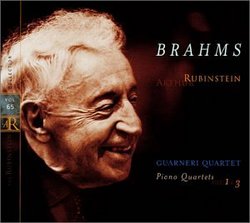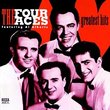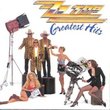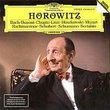| All Artists: Johannes Brahms, Artur Rubinstein, Guarneri Quartet, Arnold Steinhardt, John Dalley, Michael Tree, David Soyer Title: Brahms: Piano Quartets Op. 25 & Op. 60, Rubinstein Collection, Vol. 65 Members Wishing: 2 Total Copies: 0 Label: RCA Original Release Date: 1/1/1967 Re-Release Date: 8/7/2001 Album Type: Original recording remastered Genre: Classical Styles: Chamber Music, Historical Periods, Classical (c.1770-1830), Modern, 20th, & 21st Century Number of Discs: 1 SwapaCD Credits: 1 UPC: 090266306527 |
Search - Johannes Brahms, Artur Rubinstein, Guarneri Quartet :: Brahms: Piano Quartets Op. 25 & Op. 60, Rubinstein Collection, Vol. 65
 | Johannes Brahms, Artur Rubinstein, Guarneri Quartet Brahms: Piano Quartets Op. 25 & Op. 60, Rubinstein Collection, Vol. 65 Genre: Classical
|
Larger Image |
CD DetailsSimilarly Requested CDs
|
CD ReviewsBrahms and Rubinstein At Their Best... Gideon Pisanty | Israel | 08/18/2002 (5 out of 5 stars) "This is one of the wonderful fruits of the Rubinstein-Guarneri collaboration. It is bewildering that Rubinstein had to arrive nearly to the age of eighty before he could find "his" string quartet, after seventy-five or so years of extensive music making. Rubinstein is, as always, revealed as a suberp Brahms interpreter, and the Guarneris just as exciting. The performers show a deep grasp of Brahms's emotionality, harmonic complexity, and, most of all, finely articulated structure. The tempos are just right, unlike the second piano quartet (appearing on a seperate volume), where the first movement is rather slow (go for the Beaux Arts Trio). Together with the devine piano quintet OP. 34 (also on a seperate volume), these three performances are flawless executions of chamber masterworks. A must for every fan of romantic chamber music!" Rubinstein in Brahms Piano Quartets 1 and 3 Lola Odiaga | Guilford, CT | 12/02/2007 (5 out of 5 stars) "I read in Arthur Rubinstein's book on his young years how much he loved Brahms music when he first heard it in Berlin as a young student. He also was elated as he began to play chamber music around the same time. His love for Brahms and for chamber music evidently continued throughout his life. In this musical dialogue with his equals he wisely knows when to lead and when to speak softly thus revealing a musical language infinitely rich in flexibility, expression and nuance." A wonderful May-December romance, even if the G minor Quarte Santa Fe Listener | Santa Fe, NM USA | 05/11/2010 (5 out of 5 stars) "I can only second the lavish praise given to this pairing of Brahms's two most popular piano quartets -- or should I say his very most popular, the G minor, plus the less ingratiating C minor as filler? Rubinstein's strongest composer, I am not convinced, was Brahms. The octogenarian's collaboration with the young Guarneri Qt. is largely dominated by his piano, which is both urgent and elegant. You can't tear your ears away, as Brahms no doubt intended, given his virtuosic skills as pianist. The string ensemble is quite perfect. The Guarneri approach both works as a quartet, with complete unanimity of voicing.
As for the readings themselves, I wouldn't say that the G minor is the best I've ever heard. Rubinstein starts off a bit too relaxed, and at times the strings support his slightly slack rhythms -- they should have asserted themselves more in the first movement of the G minor. but the Andante co moto could hardly be lovelier. I like the gypsy Rondo to really fly off the boil, which it doesn't here, but if Argerich and friends on DG are the ultimate in excitement, Rubinstein's group is lively and alive in a lighter way. the evenness of the pianist's touch completely belies his age. He really did have a second youth when he discovered his young collaborators. The Piano Quartet no. 3, like the Piano Trio no. 2, is a thorny work in C minor, a key that brings out Brahms's shadowy inner life with its tendency to turbulence and melancholy. Rubinstein doesn't shy away from these qualities, leading the ensemble with strong-limbed confidence. this work will never be a popular favorite, yet in the hands of accomplished musicians, it speaks for itself with conviction, as here. For me, the chief rival to this reading comes from Isaac Stern and company on Sony, but there you must be patient with Stern's not completely reliable intonation; b comparison, the strings here are uniformly sweet and on pitch. I also think their less strenuous execution is preferable; tis music is strenuous enough on its own. Notice how gracefully the off-kilter rhythm in the Scherzo is slightly smoothed out but not made bland. If you're only having one version of this work, here you go. RCA's close-up recorded sound is clear and natural." |

 Track Listings (8) - Disc #1
Track Listings (8) - Disc #1








